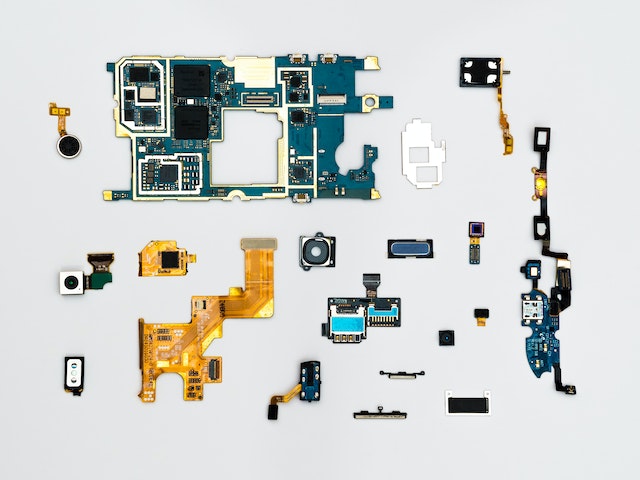Comments
- No comments found

In the past few decades, technological advancements have revolutionized the way we live, work, and communicate.
From smartphones to smart homes, we are surrounded by technology that promises to make our lives more convenient and efficient. While these innovations undoubtedly bring numerous benefits, there is a growing concern that technology is making people lazy. In this article, we will delve into the ways in which technology can contribute to laziness and its impact on human productivity.

One of the most apparent ways in which technology fosters laziness is by promoting a sedentary lifestyle. The rise of digital entertainment, social media, and streaming platforms has led to a decrease in physical activity. Instead of engaging in outdoor activities or exercising, people spend more time sitting in front of screens, leading to health problems such as obesity, cardiovascular diseases, and weakened muscles.
Technological advancements have significantly automated various tasks, simplifying our lives. While automation improves efficiency and saves time, it also fosters laziness by reducing the need for human intervention. With the advent of robotic vacuum cleaners, self-driving cars, and voice assistants, individuals no longer need to engage in manual labor or even think critically about certain tasks. As a result, they may become overly reliant on technology, compromising their ability to problem-solve and perform tasks independently.
The internet has become a vast repository of information, accessible at our fingertips. However, this abundance of information has made people lazy in terms of critical thinking and analysis. With search engines readily available, individuals tend to rely on quick online searches rather than engaging in deep research or critical analysis. As a result, they become passive recipients of information, potentially leading to a decline in cognitive abilities and critical thinking skills.
Technology has undoubtedly brought people closer together, enabling seamless communication across borders. However, it has also contributed to a decline in face-to-face social interactions. Social media platforms, messaging apps, and video conferencing tools have made it easier for individuals to connect virtually. While this connectivity has its advantages, it can lead to laziness in building and maintaining real-life relationships. People may choose the comfort of online interactions over the effort required for in-person meetings, reducing opportunities for genuine human connection.

With the advent of digital assistants and smart devices, individuals are increasingly relying on technology to perform tasks that once required mental effort. For instance, calendar apps and reminders manage our schedules, spell-checkers correct our writing, and calculators handle mathematical computations. While these tools undoubtedly enhance productivity, they can inadvertently contribute to mental laziness. People may no longer feel the need to sharpen their memory or develop critical thinking skills, relying on technology to perform cognitive tasks.
Technology has revolutionized the workplace, streamlining processes and improving efficiency. However, it has also contributed to a decline in productivity due to distractions and multitasking. The constant presence of smartphones and social media notifications can divert attention from important tasks, leading to procrastination and decreased focus. Additionally, the expectation of immediate responses and constant connectivity can blur the boundaries between work and personal life, leading to burnout and reduced overall productivity.
While technology can foster laziness, it is essential to note that its impact varies depending on how it is used. To mitigate the negative effects and promote a healthy balance, individuals can adopt the following strategies:
Setting Boundaries: Establish designated technology-free zones or specific times for unplugging from devices to promote physical activity, social interactions, and quality time with loved ones.
Practicing Mindfulness: Being aware of one's technology usage and its impact on productivity is crucial. Practicing mindfulness can help individuals consciously choose when and how to use technology, ensuring that it enhances rather than hinders their productivity.
Technology undoubtedly brings numerous benefits and conveniences to our lives, but it also has the potential to foster laziness and hinder productivity. The sedentary lifestyle, dependence on automation, information overload, decreased social interaction, reduced mental effort, and impact on work productivity are all aspects to be mindful of. However, by setting boundaries, practicing mindfulness, engaging in physical activity, developing critical thinking skills, setting priorities, embracing technology as a tool, and cultivating real-life connections, individuals can harness the positive aspects of technology while mitigating its negative effects. Striking a balance between leveraging technology for efficiency and maintaining an active, engaged lifestyle is key to combating the potential laziness associated with technological advancements.
Mihir Gadhvi is the co-founder of illustrake and HAYD. Illustrake is a D2C Enabler and offers Performance Marketing, Retention Marketing, and Content Creation Services. HAYD is a brand New, homegrown fashion line that aims to make clothing easy for us without taxing our planet. Although the concept is quite known now, HAYD wants to accomplish sustainability by reducing its impact on the environment with safe and fair manufacturing.
Leave your comments
Post comment as a guest